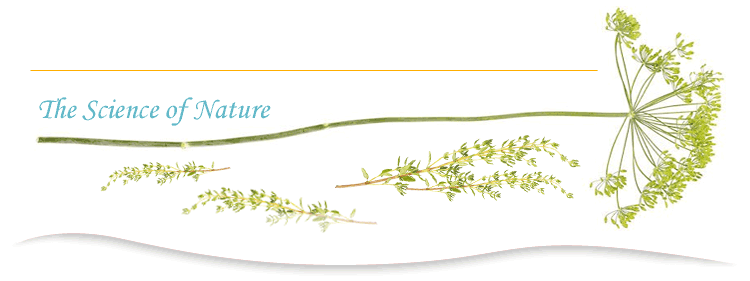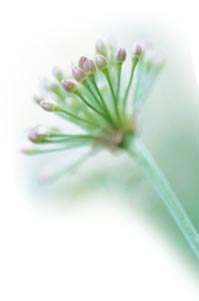

Flaxseed (Lignans)
Description
Flaxseed is an oil extracted from the seed of the common flax or linseed plant (Linum usitatissimum). Flaxseed contains alpha-linolenic acid (essential omega-3 fatty acid) and lignans, which are part of the phytoestrogen group.
Function
Flaxseed has often been associated with a reduction in platelet aggregation, reduction of cardiovascular disease risk and reduction of cholesterol. There is evidence from animal studies also suggesting that flaxseed may have a positive effect in the prevention of some types of cancers. However more research is still necessary to assess the effects and properties of flaxseed in those conditions.
Toxicity
No problems have been described.
Important notice: please click here.
I want to learn more

Additional Sources of Information:
Scientific References
Assessment of data on the lignan content of foods. J Food Compos Anal. Meagher LP, Beecher GR. 2000;13(6):935-947.
Association between low serum enterolactone and increased plasma F2-isoprostanes, a measure of lipid peroxidation. Vanharanta M, Voutilainen S, Nurmi T, et al. Atherosclerosis. 2002;160(2):465-469.
[Abstract]
Bioavailability of phyto-oestrogens. Rowland I, Faughnan M, Hoey L, Wahala K, Williamson G, Cassidy A. Br J Nutr. 2003;89 Suppl 1:S45-58.
[Abstract]
Circulating enterolactone and prostate cancer risk: a Nordic nested case-control study. Stattin P, Adlercreutz H, Tenkanen L, et al. Int J Cancer. 2002;99(1):124-129.
[Abstract]
Circulating enterolactone and risk of endometrial cancer. Zeleniuch-Jacquotte A, Lundin E, Micheli A, et al. Int J Cancer. 2006;119(10):2376-2381.
[Abstract]
Dietary intake of phytoestrogens is associated with a favorable metabolic cardiovascular risk profile in postmenopausal U.S.women: the Framingham study. de Kleijn MJ, van der Schouw YT, Wilson PW, Grobbee DE, Jacques PF. J Nutr. 2002;132(2):276-282.
[Abstract]
Dietary lignan intake and postmenopausal breast cancer risk by estrogen and progesterone receptor status. Touillaud MS, Thiebaut AC, Fournier A, Niravong M, Boutron-Ruault MC, Clavel-Chapelon F. J Natl Cancer Inst. 2007;99(6):475-486.
[Abstract]
Dietary phytoestrogen, serum enterolactone and risk of prostate cancer: the cancer prostate Sweden study (Sweden). Cancer Causes Control. Hedelin M, Klint A, Chang ET, et al. 2006;17(2):169-180.
[Abstract]
Dietary phytoestrogens and breast cancer risk. Keinan-Boker L, van Der Schouw YT, Grobbee DE, Peeters PH. Am J Clin Nutr. 2004;79(2):282-288.
[Abstract]
Do phytoestrogens reduce the risk of breast cancer and breast cancer recurrence? What clinicians need to know. Velentzis LS, Woodside JV, Cantwell MM, Leathem AJ, Keshtgar MR. Eur J Cancer. 2008;44(13):1799-1806.
[Abstract]
Effect of flaxseed consumption on blood pressure, serum lipids, hemopoietic system and liver and kidney enzymes in healthy humans. Stuglin C, Prasad KJ Cardiovasc Pharmacol Ther. 2005;10(1):23-27.
[Abstract]
Enterolactone as a risk factor for breast cancer: a review of the published evidence. Boccardo F, Puntoni M, Guglielmini P, Rubagotti A. Clin Chim Acta. 2006;365(1-2):58-67.
[Abstract]
Experimental studies on lignans and cancer. Thompson LU. Baillieres Clin Endocrinol Metab. 1998;12(4):691-705.
[Abstract]
Flaxseed and cardiovascular risk factors: results from a double blind, randomized, controlled clinical trial. Bloedon LT, Balikai S, Chittams J, et al. J Am Coll Nutr. 2008;27(1):65-74.
[Abstract]
Flaxseed dietary supplement versus hormone replacement therapy in hypercholesterolemic menopausal women. Lemay A, Dodin S, Kadri N, Jacques H, Forest JC. Obstet Gynecol. 2002;100(3):495-504.
[Abstract]
Flaxseed improves lipid profile without altering biomarkers of bone metabolism in postmenopausal women. Lucas EA, Wild RD, Hammond LJ, et al. J Clin Endocrinol Metab. 2002;87(4):1527-1532.
[Abstract]
Flaxseed in lupus nephritis: a two-year nonplacebo-controlled crossover study. Clark WF, Kortas C, Heidenheim AP, Garland J, Spanner E, Parbtani A. J Am Coll Nutr. 2001;20(2 Suppl):143-148.
[Abstract]
Flaxseed reduces total and LDL cholesterol concentrations in Native American postmenopausal women. Patade A, Devareddy L, Lucas EA, Korlagunta K, Daggy BP, Arjmandi BH. J Womens Health (Larchmt). 2008;17(3):355-366.
[Abstract]
Flaxseed: a potential treatment for lupus nephritis. Clark WF, Parbtani A, Huff MW, et al. Kidney Int. 1995;48(2):475-480.
[Abstract]
Health aspects of partially defatted flaxseed, including effects on serum lipids, oxidative measures, and ex vivo androgen and progestin activity: a controlled crossover trial. Jenkins DJ, Kendall CW, Vidgen E, et alAm J Clin Nutr. 1999;69(3):395-402.
[Abstract]
Intake of dietary phytoestrogens is low in postmenopausal women in the United States: the Framingham study(1-4). de Kleijn MJ, van der Schouw YT, Wilson PW, et al. J Nutr. 2001;131(6):1826-1832.
[Abstract]
Intake of the plant lignans secoisolariciresinol, matairesinol, lariciresinol, and pinoresinol in Dutch men and women. Milder IE, Feskens EJ, Arts IC, de Mesquita HB, Hollman PC, Kromhout D. J Nutr. 2005;135(5):1202-1207.
[Abstract]
Isoflavonoid and lignan phytoestrogens as dietary biomarkers. Lampe JW. J Nutr. 2003;133 Suppl 3:956S-964S.
[Abstract]
Lack of prospective associations between plasma and urinary phytoestrogens and risk of prostate or colorectal cancer in the European Prospective into Cancer-Norfolk study. Ward H, Chapelais G, Kuhnle GG, Luben R, Khaw KT, Bingham S. Cancer Epidemiol Biomarkers Prev. 2008;17(10):2891-2894.
[Abstract]
Lignan contents of Dutch plant foods: a database including lariciresinol, pinoresinol, secoisolariciresinol and matairesinol. Milder IE, Arts IC, van de Putte B, Venema DP, Hollman PC. Br J Nutr. 2005;93(3):393-402.
[Abstract]
Lignans and breast cancer risk in pre- and post-menopausal women: meta-analyses of observational studies. Velentzis LS, Cantwell MM, Cardwell C, Keshtgar MR, Leathem AJ, Woodside JV. Br J Cancer. 2009;100(9):1492-1498.
[Abstract]
Lignans and human health. Adlercreutz H. Crit Rev Clin Lab Sci. 2007;44(5-6):483-525.
[Abstract]
Mammalian lignans and genistein decrease the activities of aromatase and 17beta-hydroxysteroid dehydrogenase in MCF-7 cells. Brooks JD, Thompson LU. J Steroid Biochem Mol Biol. 2005;94(5):461-467.
[Abstract]
Mammalian phytoestrogens: enterodiol and enterolactone. Wang LQ. J Chromatogr B Analyt Technol Biomed Life Sci. 2002;777(1-2):289-309.
[Abstract]
No association between dietary phytoestrogens and risk of premenopausal breast cancer in a French cohort study. Touillaud MS, Thiebaut AC, Niravong M, Boutron-Ruault MC, Clavel-Chapelon F. Cancer Epidemiol Biomarkers Prev. 2006;15(12):2574-2576.
[Abstract]
Nutritional attributes of traditional flaxseed in healthy young adults. Cunnane SC, Hamadeh MJ, Liede AC, Thompson LU, Wolever TM, Jenkins DJ. Am J Clin Nutr. 1995;61(1):62-68.
[Abstract]
Pharmacokinetics of enterolignans in healthy men and women consuming a single dose of secoisolariciresinol diglucoside. Kuijsten A, Arts IC, Vree TB, Hollman PC. J Nutr. 2005;135(4):795-801.
[Abstract]
Phytoestrogen intake and endometrial cancer risk. Horn-Ross PL, John EM, Canchola AJ, Stewart SL, Lee MM. J Natl Cancer Inst. 2003;95(15):1158-1164.
[Abstract]
Phytoestrogen intake and prostate cancer: a case-control study using a new database. Strom SS, Yamamura Y, Duphorne CM, et al. Nutr Cancer. 1999;33(1):20-25.
[Abstract]
Phytoestrogens: a review of the present state of research. Ososki AL, Kennelly EJ. Phytother Res. 2003;17(8):845-869.
[Abstract]
Phyto-oestrogen database of foods and average intake in Finland. Valsta LM, Kilkkinen A, Mazur W, et al. Br J Nutr. 2003;89 Suppl 1:S31-38.
[Abstract]
Phyto-oestrogen excretion and rate of bone loss in postmenopausal women. Kardinaal AF, Morton MS, Bruggemann-Rotgans IE, van Beresteijn EC. Eur J Clin Nutr. 1998;52(11):850-855.
[Abstract]
Phyto-oestrogens and risk of prostate cancer in Scottish men. Heald CL, Ritchie MR, Bolton-Smith C, Morton MS, Alexander FE. Br J Nutr. 2007;98(2):388-396.
[Abstract]
Plasma phyto-oestrogens and prostate cancer in the European Prospective Investigation into Cancer and Nutrition. Travis RC, Spencer EA, Allen NE, et al. Br J Cancer. 2009;100(11):1817-1823.
[Abstract]
Prospective study of plasma enterolactone and prostate cancer risk (Sweden). Stattin P, Bylund A, Biessy C, Kaaks R, Hallmans G, Adlercreutz H. Cancer Causes Control. 2004;15(10):1095-1102.
[Abstract]
Recent diet and breast cancer risk: the California Teachers Study (USA). Horn-Ross PL, Hoggatt KJ, West DW, et al. Cancer Causes Control. 2002;13(5):407-415.
[Abstract]
Relationships of urinary phyto-oestrogen excretion to BMD in postmenopausal women. Kim MK, Chung BC, Yu VY, et al. Clin Endocrinol (Oxf). 2002;56(3):321-328.
[Abstract]
Risk of cardiovascular disease-related and all-cause death according to serum concentrations of enterolactone: Kuopio Ischaemic Heart Disease Risk Factor Study. Vanharanta M, Voutilainen S, Rissanen TH, Adlercreutz H, Salonen JT. Arch Intern Med. 2003;163(9):1099-1104.
[Abstract]
Risk of human ovarian cancer is related to dietary intake of selected nutrients, phytochemicals and food groups. McCann SE, Freudenheim JL, Marshall JR, Graham S. J Nutr. 2003;133(6):1937-1942.
[Abstract]
Serum enterolactone concentration and the risk of coronary heart disease in a case-cohort study of Finnish male smokers. Kilkkinen A, Erlund I, Virtanen MJ, Alfthan G, Ariniemi K, Virtamo J. Am J Epidemiol. 2006;163(8):687-693.
[Abstract]
Serum enterolactone concentration is not associated with prostate cancer risk in a nested case-control study. Kilkkinen A, Virtamo J, Virtanen MJ, Adlercreutz H, Albanes D, Pietinen P., Cancer Epidemiol Biomarkers Prev. 2003;12(11 Pt 1):1209-1212.
[Abstract]
Supplementation with flaxseed alters estrogen metabolism in postmenopausal women to a greater extent than does supplementation with an equal amount of soy. Brooks JD, Ward WE, Lewis JE, et al. Am J Clin Nutr. 2004;79(2):318-325.
[Abstract]
The effects of flaxseed dietary supplement on lipid profile, bone mineral density, and symptoms in menopausal women: a randomized, double-blind, wheat germ placebo-controlled clinical trial. Dodin S, Lemay A, Jacques H, Legare F, Forest JC, Masse B. J Clin Endocrinol Metab. 2005;90(3):1390-1397.
[Abstract]
The relative bioavailability of enterolignans in humans is enhanced by milling and crushing of flaxseed. Kuijsten A, Arts IC, van't Veer P, Hollman PC. J Nutr. 2005;135(12):2812-2816.
[Abstract]
Understanding Estrogen Receptors/SERMs. National Cancer Institute. January, 2005.
Use of oral antimicrobials decreases serum enterolactone concentration. Kilkkinen A, Pietinen P, Klaukka T, Virtamo J, Korhonen P, Adlercreutz H. Am J Epidemiol. 2002;155(5):472-477.
[Abstract]
Whole flaxseed consumption lowers serum LDL-cholesterol and lipoprotein(a) concentrations in postmenopausal women. Arjmandi BH, Khan DA, Jurna S. Nutr Res. 1998;18:1203-1214.
[Abstract]